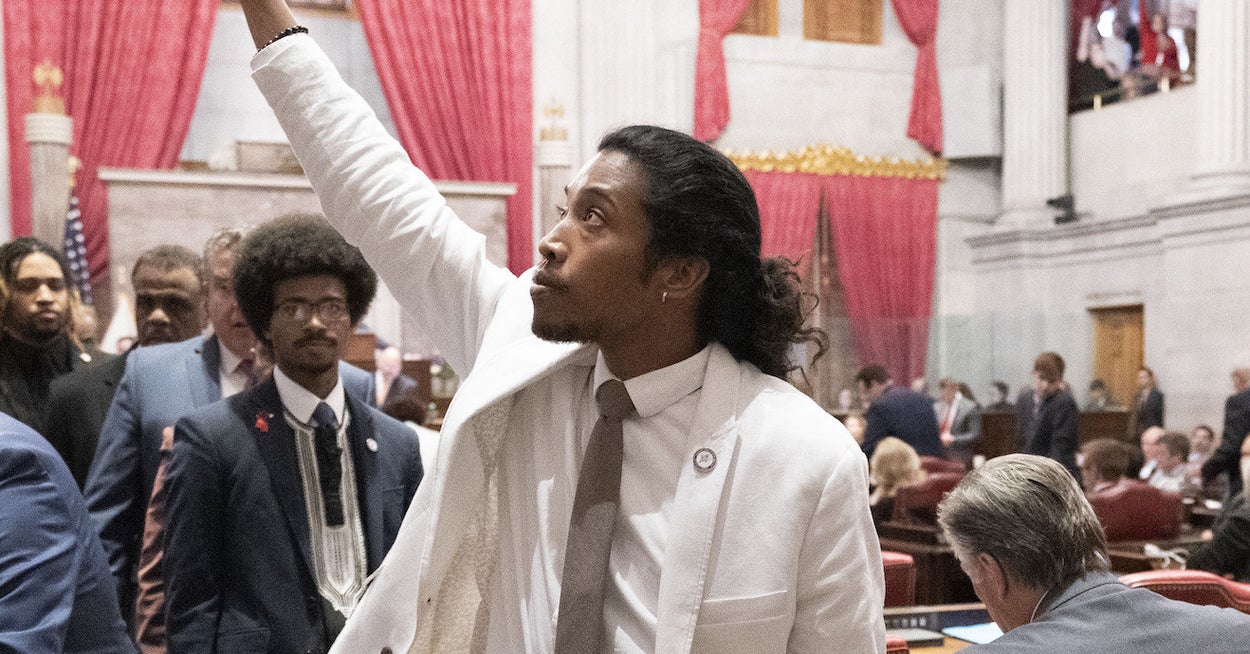In a recent, highly controversial political development, several lawmakers were expelled from their positions due to their involvement in a peaceful protest. This drastic measure has sparked a widespread backlash from various leaders nationwide, including a notable critique from President Joe Biden. The President took to social media to express his dismay, stating, “The expulsion of lawmakers who engaged in peaceful protest is shocking, undemocratic, and unprecedented.” This comment underscored the severity and rarity of the action taken against the elected officials.
Historically, the expulsion of members from legislative bodies has been reserved for those accused of grave offenses. Instances of such include situations where lawmakers were removed for engaging in acts such as soliciting bribes or being implicated in allegations of sexual misconduct. These precedents highlight the usual gravity associated with the decision to expel a lawmaker, making the recent expulsions for participation in a peaceful protest appear remarkably severe and unusual.
The controversy centers around the actions taken by House Speaker Cameron Sexton, who wields significant influence due to leading a GOP supermajority. In his statements, Sexton attempted to draw parallels between the expelled lawmakers’ involvement in the protest and the violent actions of the Jan. 6 rioters at the US Capitol. However, this comparison has been met with criticism and skepticism. Reports confirm that the protesters involved in the recent incident, unlike those during the Jan. 6 insurrection, had entered the building legally after passing through security screenings, did not cause any property damage, and none were arrested. This paints a picture starkly different from the chaos and violence associated with the Capitol riot, questioning the fairness and rationale behind likening the two events.
Furthermore, the situation continues to evolve as replacements for the vacated positions are underway. Before the reappointment of the expelled lawmakers, Doug Kufner, a spokesperson for Sexton, communicated through a statement to BuzzFeed News that the appointments would be conducted by the Nashville and Shelby County governments. He emphasized that these new representatives would be seated as mandated by the constitution, indicating a process in line with legal and procedural norms.
The expulsions have thus opened up a complex debate about the boundaries of permissible protest by lawmakers and the appropriate responses by legislative leadership. They have also raised critical questions about the balance between maintaining order and upholding democratic values within legislative practices.
This scenario reflects broader tensions within American politics, where the actions of lawmakers and the reactions from leadership can sometimes escalate into significant constitutional and ethical concerns. This controversy, in particular, underscores the delicate interplay between government authority and individual rights, especially in the context of political expression and protest. As the situation unfolds, it continues to attract attention and provoke discussion about the nature of democracy and governance in today’s political climate.
The dialogue surrounding these events serves as a mirror reflecting the ongoing struggles within the nation’s legislative bodies to address and manage dissent. It also highlights the potential repercussions that political leaders face when their decisions are perceived as disproportionate or misaligned with democratic principles. The fierce criticism from the President and other prominent figures adds layers to the discourse, emphasizing the need for careful consideration and judicious application of legislative powers.
At the heart of this debate lies the fundamental question of how democracies should handle internal conflicts and dissent within the ranks of their elected representatives. The unfolding responses and eventual outcomes of this incident will likely serve as a benchmark for future instances where legislative actions are scrutinized for their adherence to democratic values and principles. As the public, politicians, and activists watch closely, the narrative around these expulsions will contribute to the ongoing conversation about the integrity and resilience of democratic institutions in the face of intra-governmental challenges.
In conclusion, the expulsion of these lawmakers represents a pivotal moment in American politics, one that may redefine how legislative bodies manage dissent and maintain democratic norms. As developments continue, the implications of this event will resonate not just within Tennessee, but across the entire nation, influencing how political protests are perceived and handled in the future.









